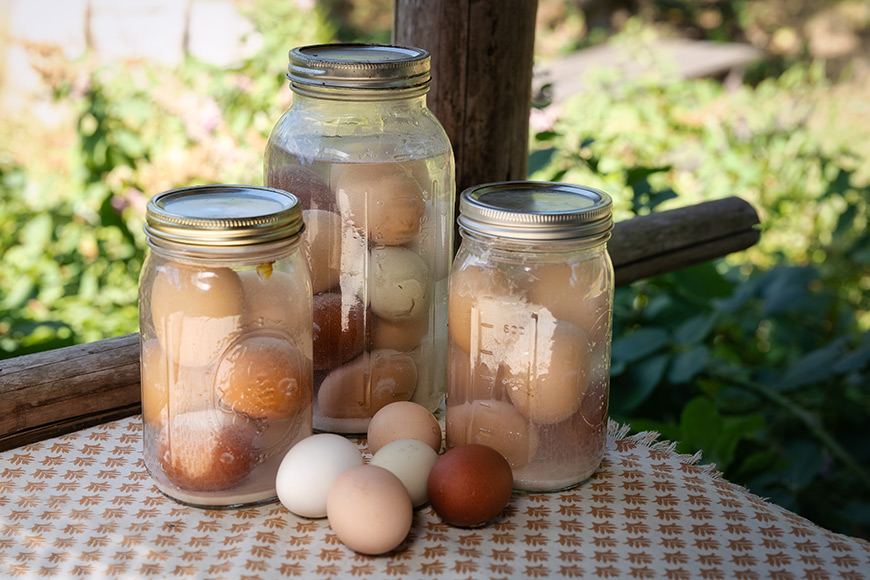We have a lot of chickens – mostly because I let nature do the culling – and a lot of chickens means a lot of eggs at different times of the year. So how to deal with it? Water glassing!
This July, once I finally made it back from the gathering in New Hampshire, I came back to dozens and dozens of eggs. Normally when we have an excess and the farm residents here have their fill, I take take them to town and offer them out on a gift economy. But after so much driving and time away from the farm, I wasn’t really wanting to go to town so soon after getting back, so I decided to try water glassing.

Water glassing is the art preserving (unwashed) eggs in pickling lime and water so that they’ll stay good for one or more years. Since there are periods of time that chickens don’t naturally lay eggs, this is super useful for those of us who’ve gotten used to having eggs as a main part of our diet. (You can trick the chickens into continuing to lay by putting a light on in the coop, but we prefer them to have as natural a life as possible.)
(Note: Most store-bought eggs are washed, so you can’t do this process with them.)
Pickling lime (calcium hydroxide) is different than agricultural lime and to my surprise, was super hard to find offline. Even stores with large canning sections didn’t have it. Finally, someone at one of the chicken feed stores I called mentioned trying a hardware store. I don’t think most of them carry it, but it just so happens that our closest hardware store had gotten a request for it. (B&I in Junction City is actually pretty awesome!) Luckily my partner had another errand there and I was able to get my hands on it the same day.

All you have to do is mix 1 ounce of pickling lime per quart of water and then carefully add in your eggs. The pickling lime fills in the micro-holes in the eggshell, sealing off the innards from exposure. I’ve heard that some folks have found their eggs good up to two years or more after water glassing.
To be clear, these are raw, uncooked eggs. When I use them, I’ll’ be cooking with them in the same way I would fresh eggs.
I’m super curious to see how it works – especially once the chickens start molting and eggs become scarce.
What do you think? Have you ever tried water-glassing eggs? Ever eaten one that had been preserved that way?